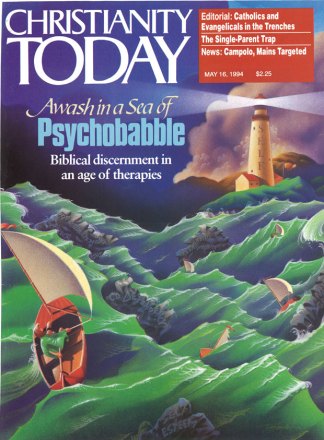“Peace on earth, good will to men,” is the familiar Christmas message of the angels, based on the King James Version’s text of Luke 2:14. But where and when, one may ask, has this promise been fulfilled? Indeed, every week brings new reports of spiraling violence, occurring in and spreading out of the Holy Land and the regions around it.
Violence accompanied the establishment of the State of Israel in 1948, and it has been the fruit of the Palestinian refugee dispersion since then. In 1973 I visited numerous Middle Eastern countries, including Lebanon, a country that was soon to be torn apart by civil war, when the amicable relations between Maronite Christians and Muslims were rent apart by the external pressures of Palestinian refugees, Israeli intervention, and Islamic “fundamentalism.”
In the following year, I had the privilege of attending the Second International Congress of Mithraic Studies in Teheran, Iran. The dozen or so American scholars there were invited to a luncheon at the American Embassy—yes, the same embassy that was later seized by the Iranians. We scholars were unaware that a revolution against the Shah was brewing. It was small consolation to read later that our American ambassador, Richard Helms, former director of the CIA, had no inkling either of the power of Ayatollah Khomeini to overthrow the government.
The repercussions of the Iranian revolution of 1979 continue to unsettle governments in the Islamic world from Morocco to Egypt, and from Syria to Iraq. They affect indirectly and sometimes directly Americans—as we discovered from the World Trade Center explosion. The February massacre of Muslims at prayer in the building erected by Herod the Great to commemorate the burial of Sarah at Hebron, just south of Bethlehem, underscored the painful saga of violence begetting further violence. This slaughter occurred, ironically, during the Jewish festival of Purim, which celebrates the deliverance of the Jews from genocide in the reign of the Persian king Xerxes.
The difference a letter makes
Where, then, is the truth in the angelic promise of universal peace, which has proven to be so illusory? First, we must remember that our Christmas celebrations conveniently ignore the massacre of the infants at Bethlehem by the paranoid Herod (Matt. 2:16). Second, although the translation of the King James Version is accurate, the Greek text it used is not.
That Greek text, known as the Textus Receptus, was based on the first printed Greek New Testament issued by Erasmus in 1516. Working in haste, Erasmus was able to use but seven inferior and late manuscripts available at Basel. Today, on the basis of hundreds of earlier manuscripts, we now have a Greek text that is far more accurate. In the vast majority of cases, the improvements are minor and make little difference, but in some cases, the sense is dramatically altered. One of those cases is Luke 2:14, where the difference of a single letter changes entirely the meaning of the text.
The Textus Receptus has en anthrōpois eudokia, whereas the best manuscripts read en anthrōpois eudokias. In the first case, the word eudokia (good will) may be taken as a parallel to peace as a subject. In the second case, eudokias qualifies anthrōpois (men or people). That is to say, peace was not promised to all men in general, but only to “men of [God’s] good will.”
The Greek parallels a Hebrew phrase found in the Dead Sea Scrolls, bnei retsono, “sons of His [i.e., God’s] will.” Hence, the RSV renders the line “and on earth peace among men with whom he is pleased,” and the NIV has “and on earth peace to men on whom his favor rests.”
Peaceable kingdom
How then can we have peace? By being people of God’s good will. How can we become people of God’s good will? By turning from our selfish and violent ways, and by accepting the Prince of Peace, who promised, “Peace; I leave with you; my peace I give you. I do not give to you as the world gives” (John 14:27, NIV).
This is a peace that garrisoned Paul’s heart in the midst of persecution and imprisonment. This is the true personal peace that was promised, not a universal peace on earth. It is a peace that is still available even in these violent times, but only to those who truly become people of God’s good will.
EDWIN M. YAMAUCHI










